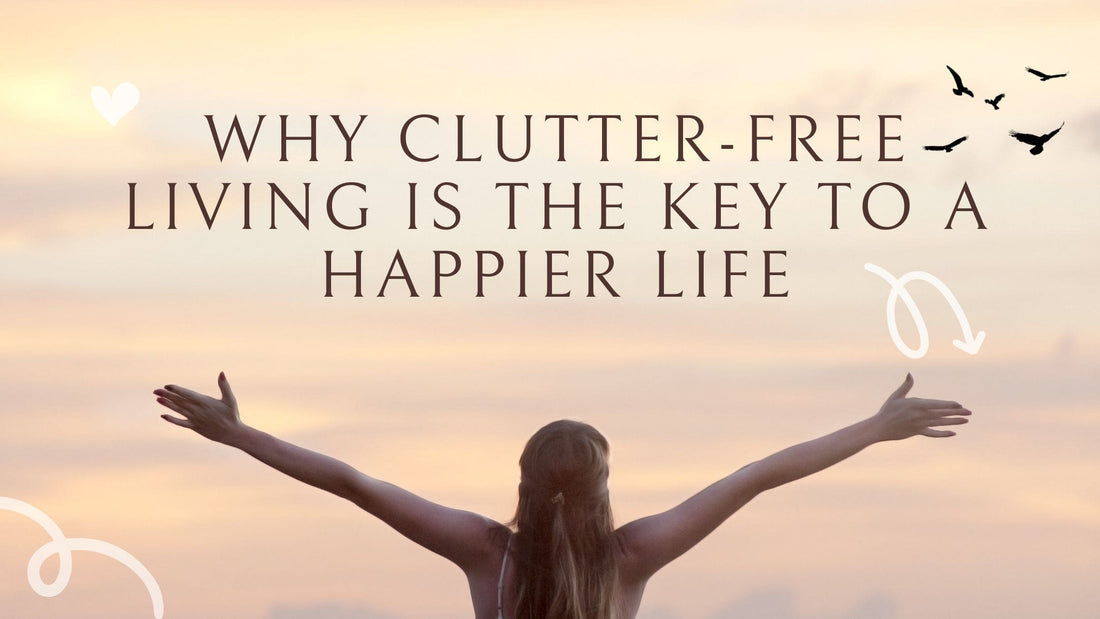Clutter is an accumulation of things that take up space in our homes and lives. While it may seem like a harmless annoyance, clutter can have a significant impact on our mental and physical well-being. Cleaning and decluttering your home can help you live a simpler, more organized life. This blog will provide tips and guidance on how to declutter your house, get rid of stuff, and clear clutter to achieve the benefits of minimalism and simple living.
The Negative Effects of Clutter
Clutter has many negative effects on our lives. It can lead to stress and anxiety, which can then lead to physical health problems such as headaches and fatigue. It can also make it difficult to concentrate and be productive, which can negatively affect your work and personal life. Here are some ways that clutter can negatively impact your life:
- Physical health problems: clutter can cause respiratory issues and allergies due to the accumulation of dust and mold
- Mental health issues: clutter can lead to anxiety, depression, and even hoarding disorder
- Difficulty concentrating and being productive: clutter can be distracting and make it difficult to focus on tasks
The Benefits of Decluttering
Decluttering your home can have a positive impact on your life in many ways. It can help you to be more organized, productive, and efficient. Here are some benefits of decluttering:
- Increased productivity: when you have less clutter, you can find what you need quickly and easily
- More efficient use of time and space: decluttering can help you use your space more effectively and reduce the time spent cleaning and organizing
- Reduced stress and anxiety: a clutter-free environment can help reduce stress and anxiety levels
- Improved sleep and relaxation: a clutter-free bedroom can lead to better sleep and a more relaxing atmosphere
The Psychology of Clutter
The reasons why people accumulate clutter can be complex. Emotional attachment to possessions, fear of letting go, and consumerism are some of the factors that contribute to clutter. Here are some insights into the psychology of clutter:
- Emotional attachment to possessions: people can develop sentimental attachments to items, making it difficult to let them go
- Fear of letting go: people may fear that they will need the item later or feel guilty for getting rid of it
- Consumerism: our society promotes the accumulation of goods, leading to a desire for more possessions
How to Declutter Your Home
Decluttering your home can seem like a daunting task, but with the right plan and mindset, it can be a manageable and rewarding process. Here are some tips for decluttering your home:
- Set goals and priorities: determine what areas of your home need the most attention and create a plan of action
- Sort and categorize possessions: separate items into categories such as keep, donate, sell, or trash
- Strategies for letting go of clutter: consider the frequency of use, sentimental value, and usefulness of an item when deciding whether to keep it
- Maintaining a clutter-free lifestyle: develop habits and systems to keep clutter from accumulating again
In conclusion, a clutter-free lifestyle has numerous benefits for our physical and mental health. Decluttering can increase productivity, reduce stress and anxiety, and lead to improved sleep and relaxation. The fear of letting go and our attachment to possessions can make it challenging to declutter. However, setting goals, sorting possessions, and using decluttering strategies can help. Visit Decluttered Homes and Organization & Storage to find products that can help you on your decluttering journey. Remember, a happier life starts with a clutter-free home.

